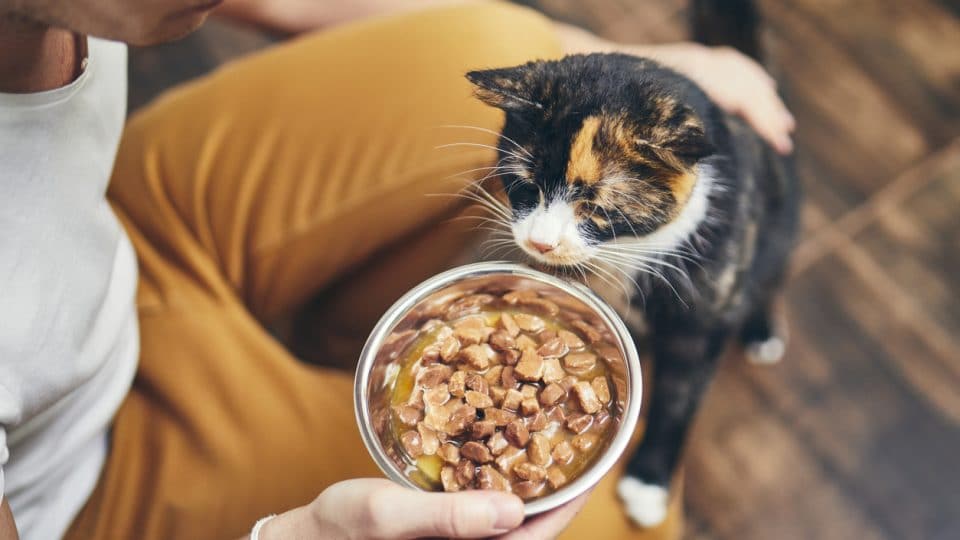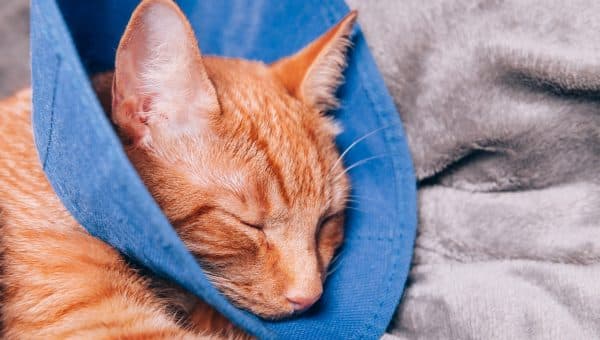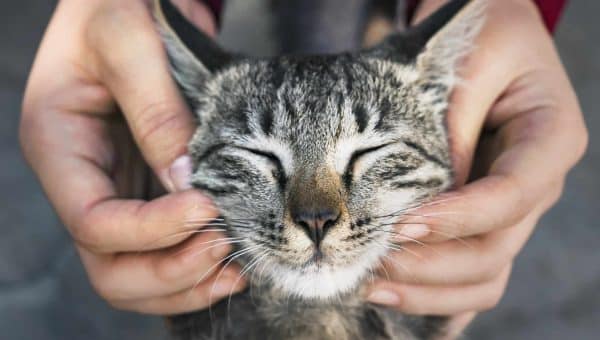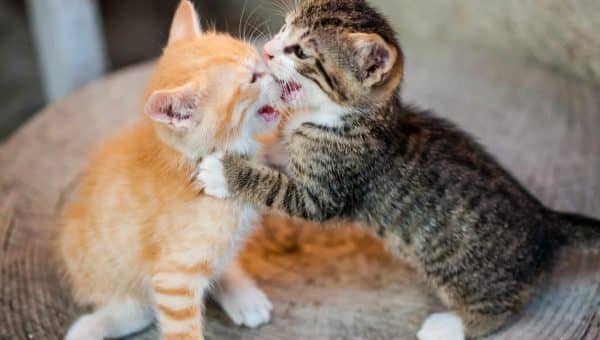Cats can be picky about what they eat, where they eat it, and how often they would prefer to be served. Even with a selection of wet and dry foods filling the important niche of nutrition, your finicky feline may turn their nose up at your carefully crafted meals. Whether you have a picky eater loafing about or your cat has suddenly had an appetite change—you might wonder how long cats can go without food. Cats can go without food for two weeks and without water for three days.
However, if your cat doesn’t eat for 24 hours, it’s a clue that you should monitor your cat for signs of sickness, pain, or a dislike for the current food. If your cat won’t eat for one day but is drinking water, experts say they won’t experience long-term medical effects. Without food or water, cats can experience serious medical concerns in as little as a day.
If the hunger strike continues for more than 24 hours, call your vet right away for an examination. After three days of a cat not eating, extra fat begins breaking down, leading to serious medical conditions. These timelines may differ from feral cats, whose bodies have not adapted to regular, human-fed meals.
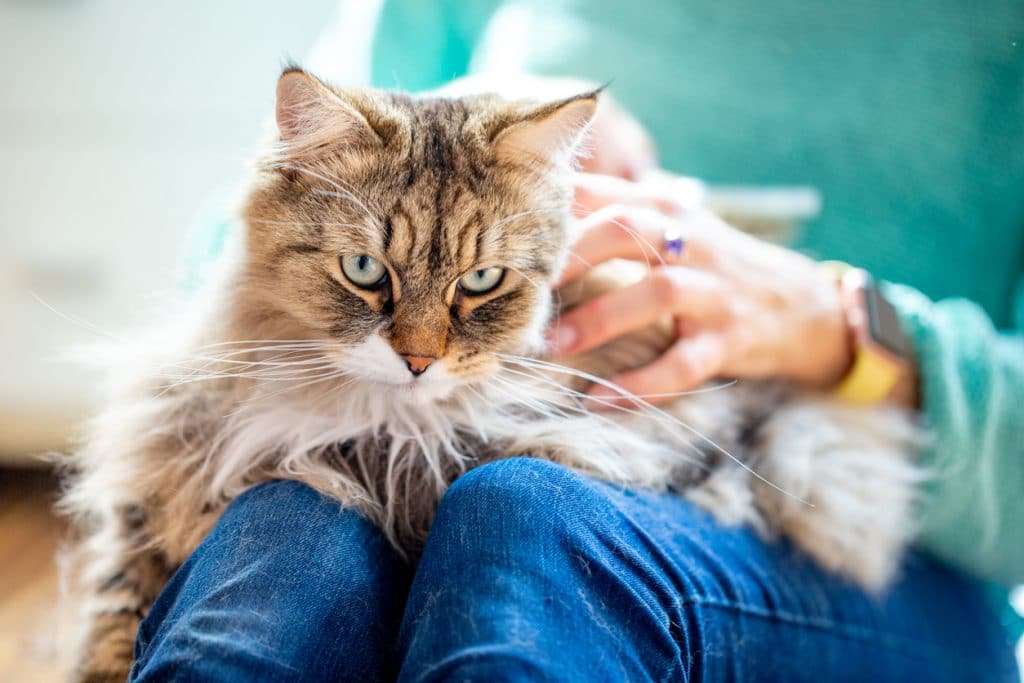
iStock/CasarsaGuru
Why Is My Cat Not Eating?
The list of reasons why your cat is suddenly not eating or has a decrease in appetite is long. Noting unusual behavior or other symptoms will help your vet understand the reason for the change in eating habits.
Food allergies
Food allergies aren’t easy to pinpoint without the help of your trusted vet, says Rebecca Greenstein, Rover Dog People panelist and Chief Veterinarian at Kleinburg Veterinary Hospital. “If you notice unusual symptoms like lack of appetite, skin issues, or tummy upset, and they happen within several weeks of a diet change or the introduction of a new treat, it could be suggestive of an underlying dietary allergy,” she says.
Respiratory problems
A stuffy nose is no fun, especially for felines that rely on their acute sense of smell to stimulate their appetite. Respiratory illnesses can have a variety of different symptoms, including a lower appetite.
Pickiness
“Cats can be very finicky eaters,” Victoria Carmella, DVM, Director of Veterinary Scientific Affairs at Blue Buffalo says. Anything from the taste, texture, or smell of food could cause your feline to skip a meal. If an assortment of your cat’s favorite foods isn’t encouraging a typical appetite within 24 hours, it’s time to consult the vet.
Digestive issues
“If a cat is experiencing any type of gastrointestinal distress like nausea, vomiting, diarrhea, or abdominal discomfort, they may be reluctant to eat or drink,” Dr. Carmella says. Unfortunately, a lack of food and water is likely to worsen the condition.
Sadness and depression
Like us, our four-legged friends can get the blues. Sadness and depression in cats can have a variety of symptoms, says Mikel Delgado Rover’s resident cat expert on The Dog People Panel. If your cat suddenly stops eating and turning down their favorite treats, they could be depressed.
Travel
“You should always check with your veterinarian about whether it is safe for your individual cat to travel,” Dr. Delgado Any change in routine can be stressful, causing a decrease in appetite, illness, and other stress-related conditions. The movement of the car itself could cause motion sickness resulting in short-term nausea and loss of appetite.
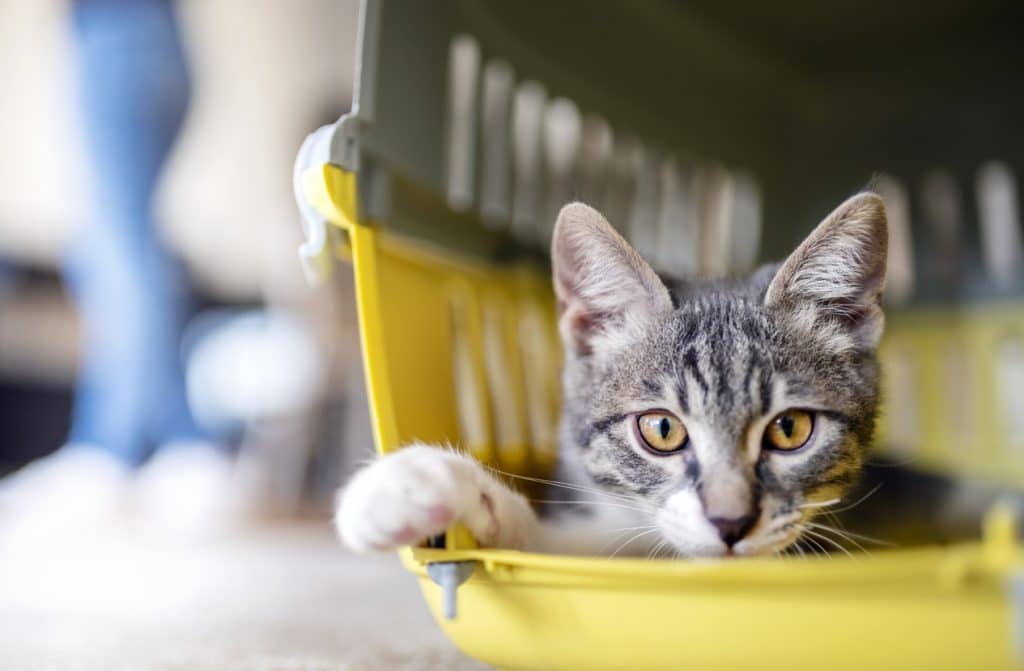
iStock/123ducu
Anxiety
Anxiety can look different from kitty to kitty. Some cats may become more subdued than normal, frozen in posture and silent. Others become more vocal, overgroom, or have a change in appetite and eating habits.
Foreign objects
Excessive hairballs and other foreign objects like string can jam up your cat’s digestive tract. “If you think your cat has swallowed a foreign object or has lost their appetite, is vomiting, or appears to be in pain, contact your veterinarian right away,” Dr. Delgado says.
Dental diseases
If your cat has lost their appetite and it’s accompanied by excessive drooling, bleps, discomfort while eating, or stinky breath (which may be addressed by brushing your cat’s teeth), they might need to see the feline dentist. Common dental issues in cats can include gingivitis, toothaches, and fractured teeth.
Medications or vaccinations
While important, vaccines and medicines could have side effects—including a loss of appetite. Side effects should be mild and short-term, but if they last more than a day or two, contact your vet.
Underlying health condition
It’s not easy to understand why your cat has suddenly stopped eating. Sometimes, only your vet can get to the root of the cause. Laura Robinson, DVM, consulting vet for Canidae Pet Food, says some possible medical issues resulting in loss of appetite and weight loss include:
- Kidney disease
- Hyperthyroidism
- Liver issues
- Diabetes
- Pancreatitis
- Parasites
- Cancer
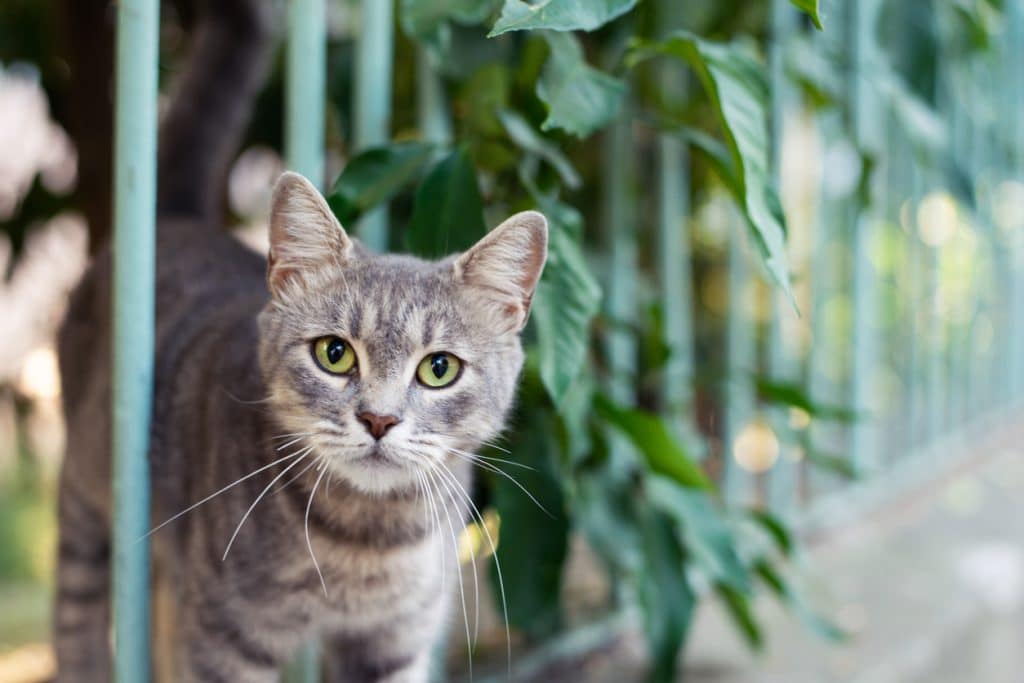
iStock/electravk
What Happens If A Cat Stops Eating?
If your cat hasn’t eaten in 24 hours, they’re likely not feeling like themselves. Dr. Sara Ochoa, DVM, veterinary consultant at Dog Lab says 24 hours without food won’t cause permanent harm to a healthy adult cat, but look out for any usual behaviors that might indicate an underlying health condition. If your cat hasn’t eaten for more than 24 hours, it’s time to consult the vet.
The nutritional needs of a cat vary greatly depending on life stage, activity level, reproductive status, and any underlying medical conditions, with small kittens being most vulnerable to severe reactions to changes in eating habits. If you notice any changes in your cat’s eating habits, it’s always best to consult with your vet sooner rather than later.
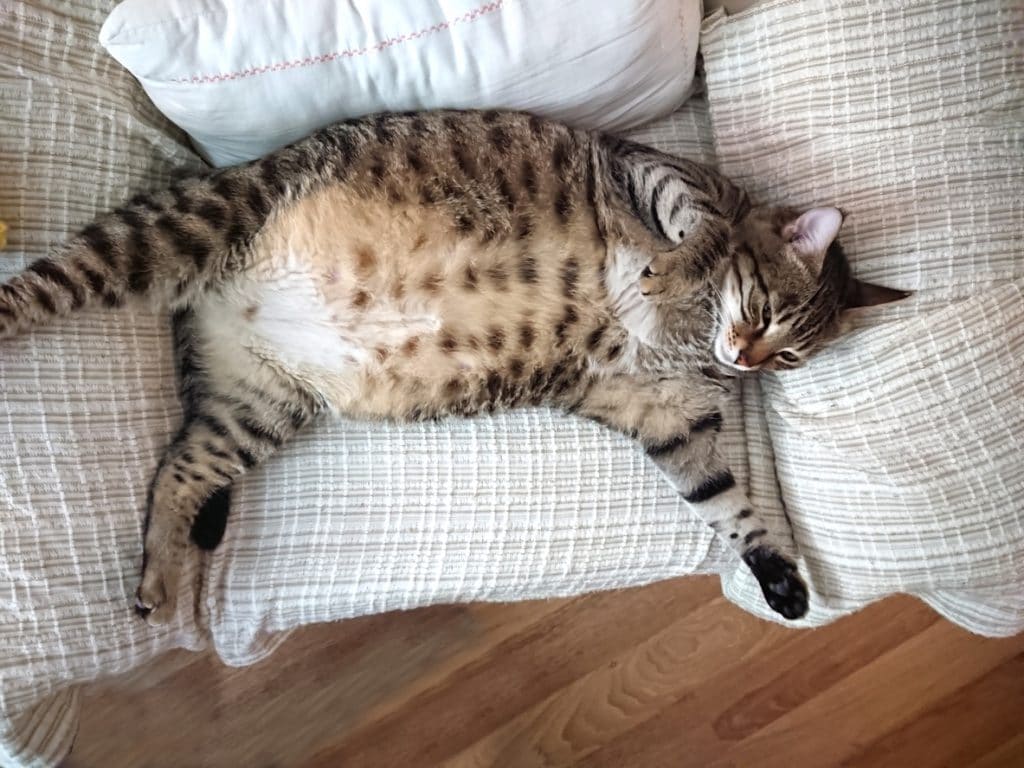
iStock/Yamac Beyter
“If your cat does not eat for three days, their body will use the excessive fat and break it down into energy for their body to use,” Dr. Ochoa explains. “This can cause a build-up of fat in your cat’s liver.”
This build-up of fat in the liver is called hepatic lipidosis—AKA a fatty liver. It develops when cats stop eating or when a cat loses too much weight over a short period. Because overweight cats have more fat that can be broken down, they’re more at risk for developing a fatty liver.
How can I treat a fatty liver in cats?
Luckily, a fatty liver can be treated, and the effects can be reversed when caught quickly. How long can a cat go without food before liver damage? Dr. Ochoa says effects on the liver can begin within 48 to 72 hours of not eating. If you spot these signs, contact your vet to prevent permanent cat liver damage:
- Yellowing of the skin and eyes
- Vomiting
- Lethargic
- Diarrhea
- Not eating
How Can I Get My Cat To Eat?
Will my cat starve itself if it doesn’t like its food? Yes, your cat can unintentionally starve themselves if they don’t like their food. Not eating is a dangerous cycle that can quickly lead to a cat becoming weak and not feeling well, exasperating their lack of appetite.
Within the first 24 hours, you can encourage your cat to eat by:
- Replacing the food bowl. A food bowl that is dirty or causes whisker fatigue could cause your cat to lose their appetite. Dr. Robinson adds that something as little as switching from metal to ceramic could do the trick.
- Moving the food bowl. Especially true for anxious or stressed cats, Dr. Robinson says a food bowl located in a high-activity area, near other cats, or near the litter box or water could all cause your cat to stop eating.
- Changing the food type. A transition in food type—like dry to wet—could cause your cat to stop eating. Allow your cat to eat the food they like until normal behavior has returned. The transition of any foods should be done slowly and gradually.
- Making the food extra smelly. “Cats are so smell-driven that in addition to adding aromatic, smelly toppings to their food, for picky eaters or sick cats you can heat up their food because it chemically makes it smell better to them,” Dr. Greenstein says.
- Adding a topper. “Adding flavored toppers to food such as flavored probiotics, meal toppers, plain turkey or chicken, or scrambled eggs” could convince your cat to nibble, Dr. Robinson says. Tuna shouldn’t be a staple in your cat’s diet, but can also be used in a pinch.
If at-home remedies don’t kick start your cat’s appetite, there may be a serious underlying health condition at play. Immediately schedule an appointment with your vet who will determine the best treatment and underlying cause.
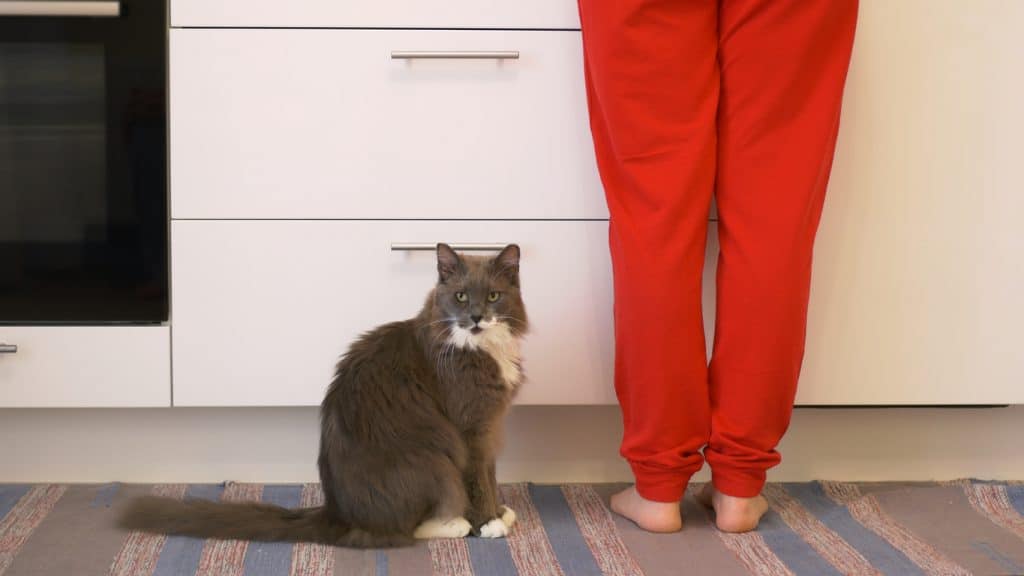
iStock/Ivan Zhaborovskiy
For mild cases of loss of appetite, your vet may prescribe anti-nausea medication or an appetite stimulant. “For more severe cases, your vet will give your cat IV fluids and, when necessary, a feeding tube to help provide your cat nutrition. Many cats with aggressive treatment will improve,” Dr. Ochoa says.
If your vet rules out sickness, you’ll want to discuss environmental factors that could cause your cat stress, anxiety, or depression.
Takeaway
A change in eating habits shouldn’t be taken lightly. The loss of appetite could signal sickness, stress, or another important need. If a cat goes more than 24 hours without eating, or if the change in eating habits is accompanied by other concerning symptoms, be sure to schedule a visit with the vet.
When cats are sly, secretive, and particular about their eating habits, it’s can be hard to pinpoint the reason behind the hunger strike. If you’re ever in doubt about your cat’s eating habits, it’s never a bad idea to check in with your vet.
